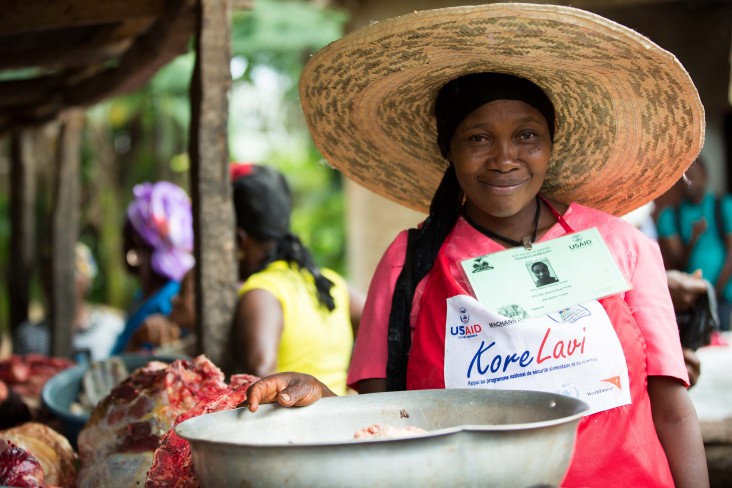
Overview
Agriculture & Food Security Fact Sheet 2017 ![]() (pdf - 399k)
(pdf - 399k)
Food insecurity is a long-standing challenge in Haiti. Even before the 2010 earthquake, Haiti suffered from one of the heaviest burdens of hunger and malnutrition in the Western Hemisphere: 40 percent of households were undernourished and 30 percent of children suffered from chronic malnutrition.
Haiti has made progress but still ranks “alarming” in the 2015 Global Hunger Index. For example, the 2012 Demographic and Health Survey showed that, between 2005-2006 and 2012, stunted children under five years of age decreased from 23.8 to 21.9 percent; wasting decreased from 9.1 to 5.1 percent; and underweight children decreased from 22.2 to 11.4 percent. Still, roughly 50 percent of Haiti’s population is undernourished, which has been exacerbated by a longstanding drought and a devastating hurricane in 2016 that severely affected 2 million people. Haiti cannot achieve economic growth and national stability if food security is not addressed.
USAID Strategy and Activities
The U.S. Agency for International Development (USAID) works to ensure that Haitians have access to nutritious, affordable food by promoting efforts to increase locally sourced food through agricultural production while also addressing the immediate needs of food-insecure households.
Improving access to food and nutrition for vulnerable households: USAID collaborates with the Government of Haiti to implement a safety net program, Kore Lavi, which builds demand and improves access for locally-produced, nutritious foods among vulnerable households through a national system of food vouchers. The program also works to improve the nutritional status of pregnant and lactating women and children under two years old through the provision of specialized foods and efforts by community health workers to promote good nutritional practices.
Promoting sustainable agricultural development: Through the Feed the Future Initiative, USAID works with Haitian farmers to increase agricultural production, modernize natural resource management and improve food security. To ensure agricultural products make it to market, USAID works with farmers to reduce post-harvest losses and facilitates public-private partnerships.
Ensuring access to school lunch: To ensure that low-income students have the energy and focus needed to be successful in school and to encourage attendance, USAID supports a school feeding program. These activities are providing nutritious snacks and hot lunches in several communes across the Central Plateau and Grand’Anse. The project also helps local female food vendors to expand their businesses.
Related Fact Sheets
- Feed the Future Haiti
- Haiti Hope Project
- Water diversion structure and irrigation system rehabilitation at the Rivière Grise (2015)








Comment
Make a general inquiry or suggest an improvement.